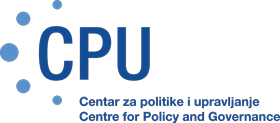Friday, February 19, 2021
Shadow economy concerns policymakers around the world. No matter how developed a country is, a portion of its national output remains hidden. Shadow economy negatively affects the collection of public revenues and consequently the quality and availability of public services, as well as the efficiency of distributive policies. It also harms the principle of fair market competition.
Four South-East European countries: Bosnia and Herzegovina, Croatia, Montenegro, and Serbia face sizable shadow economy, estimated at 27.1% of GDP in Croatia, and approximately 30% for remaining three countries, which is significantly above the EU average of 17.9%.
We have explored informal markets in the selected economies, investigated drivers for engaging in informal activities and provided policy recommendations for reducing the informal sector. The study comprises findings of both primary and secondary research. Primary research included a quantitative survey on a representative sample of around 4 thousand respondents across four countries. Data collection was conducted in May and June 2019.
The research methodology was developed in cooperation with the Lithuanian Free Market Institute based on its original research concept and design.
The present report was funded by PMI IMPACT, a grant award initiative of Philip Morris International (“PMI”). In the performance of its research, Centre for Policy and Governance maintained full independence from PMI. The views and opinions expressed in this document are those of Centre for Policy and Governance and do not necessarily reflect the views of PMI. Responsibility for the information and views expressed in this report lies entirely with Centre for Policy and Governance. Neither PMI, nor any of its affiliates, nor persons acting on their behalf may be held responsible for any use which may be made of the information contained herein.
Executive summary is available HERE, and full Report is avalable HERE.
Also available in local languages HERE.
